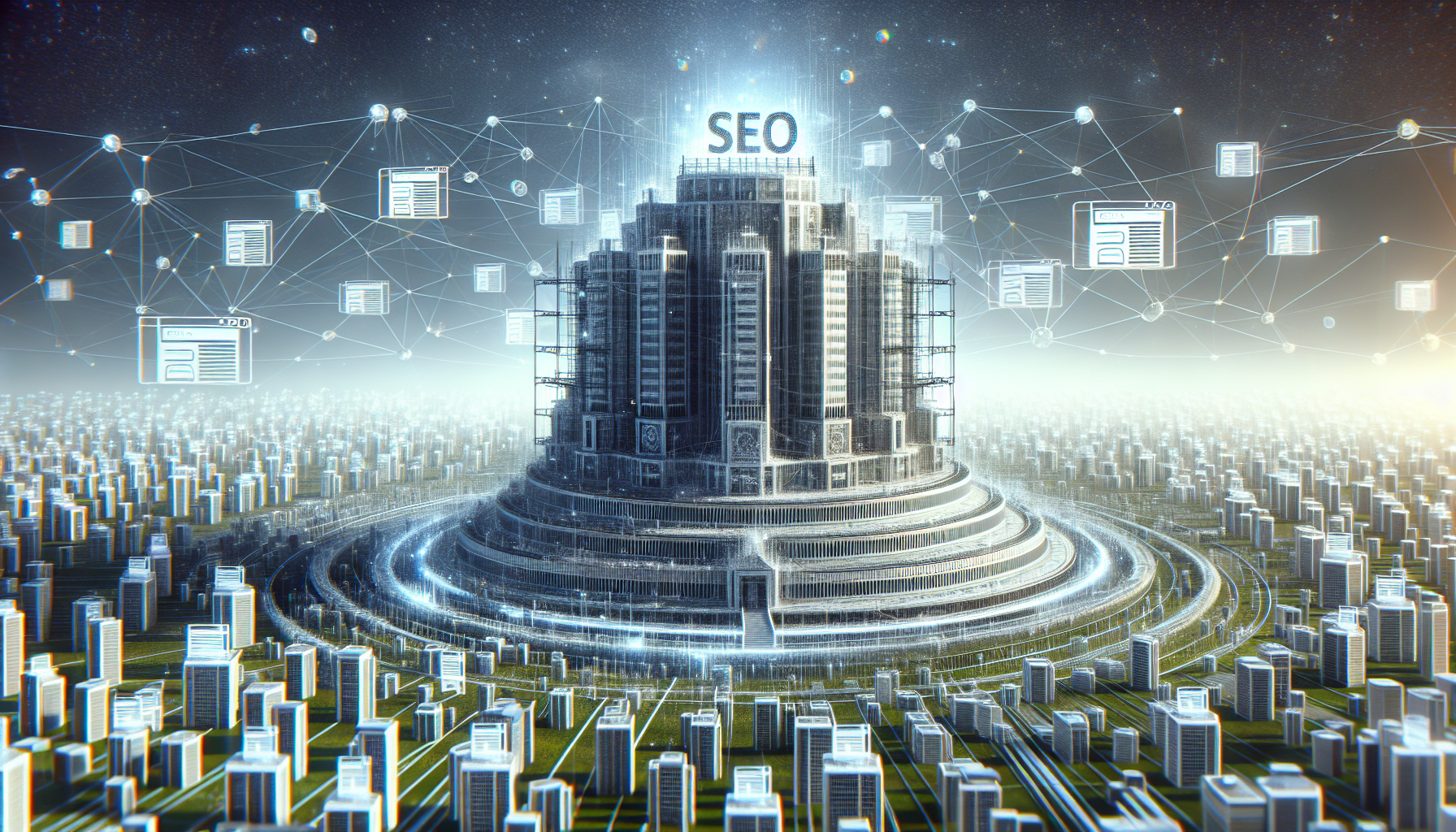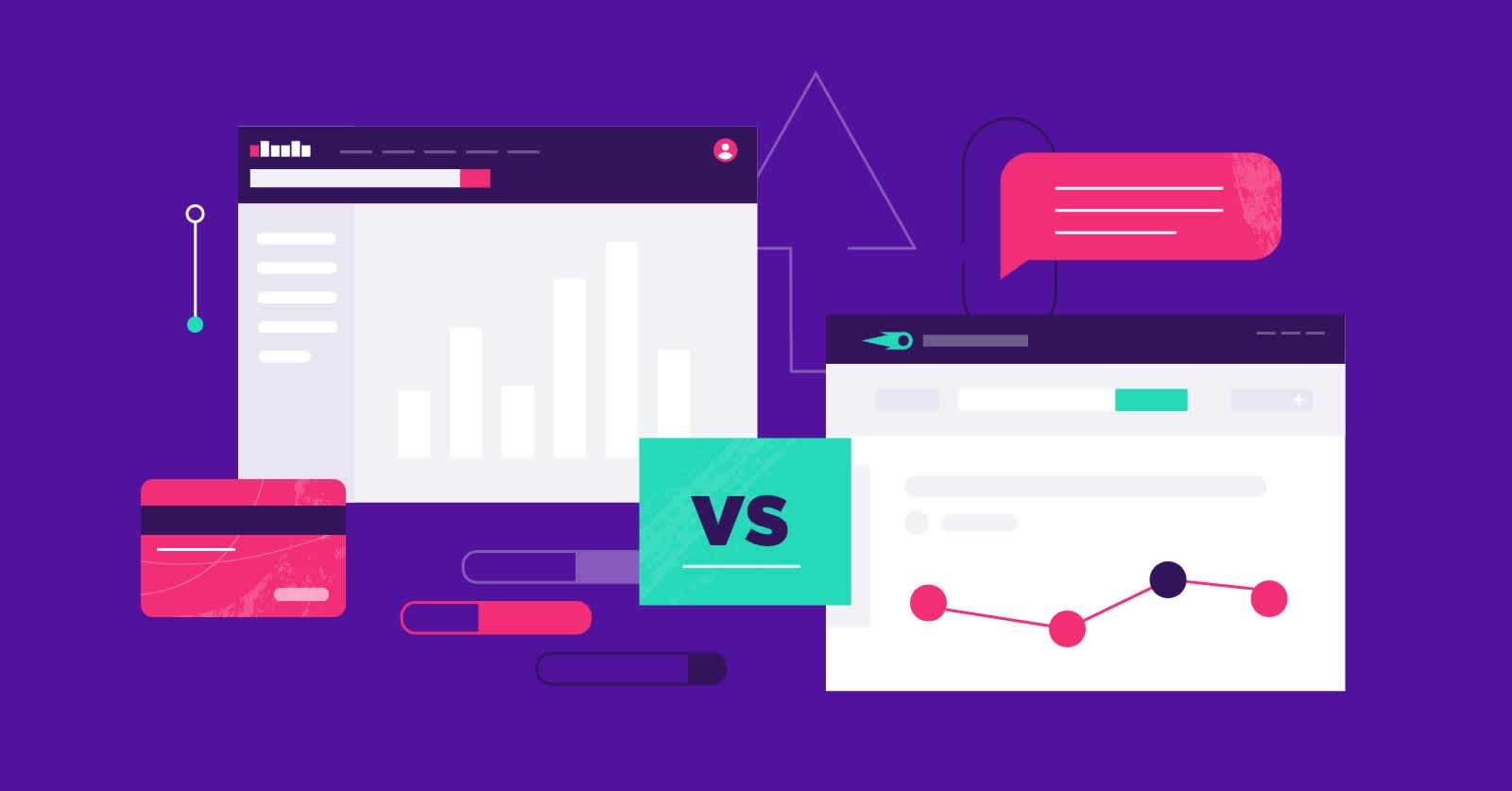Search Engine Optimization, commonly known as SEO, is a digital marketing strategy that has gained immense popularity among businesses worldwide. SEO can be stratified into two fundamental types—On-Page SEO and Off-Page SEO—both of which are instrumental in your website's performance and ranking on the Search Engine Results Pages (SERPs).
Today, we will delve deep into the core differences between On-Page and Off-Page SEO, how they work together to boost your online presence, and why you should strike a balance between the two. Read on to find out more about these two formidable pillars of SEO.
The Essence of On-Page SEO
On-Page SEO, also known as On-Site SEO, refers to the process of optimizing all the elements within a website to improve its visibility and ranking. This type of SEO revolves around optimizing content along with the HTML source code of the website. From the title tags, meta descriptions, internal links, to the quality of the content, On-Page SEO looks after every minute detail of your site. The key facets of On-Page SEO include:
- Keyword Optimization: Using relevant keywords throughout the website—be it in the titles, descriptions, or content—is central to On-Page SEO.
- Meta Descriptions and Title Tags: Crafting enticing meta descriptions and title tags that include your target keywords can significantly impact click-through rates.
- Website Architecture: Optimizing the architecture of your website, including URLs and internal links, is crucial for search engines to understand the hierarchy of your site.
- Content Quality and Freshness: Ensuring the delivery of high-quality, up-to-date and relevant content enhances the website's authority and credibility.
Delving into Off-Page SEO
Off-Page SEO points to all the activities you carry out outside your website to raise your site's ranking within the SERPs. Unlike On-Page SEO, Off-Page SEO hinges more on leveraging human behavior than working with the nitty-gritty of site development. It majorly deals with link building, social media marketing, and influencer marketing. The key facets of Off-Page SEO include:
- Backlinks: Acquiring high-quality backlinks from authoritative websites significantly boosts your website performance.
- Social Media Marketing: Social signals from social media platforms can also affect the site's performance on SERPs.
- Brand Mentions: Whether it's a spoken or written mention of your brand online, it plays a role in your website's search ranking.
- Influencer Outreach: Partnering with influencers in your domain helps in drawing larger audiences and peak interest in your brand.
On-Page SEO vs Off-Page SEO: The Core Differences
While On-Page and Off-Page SEO may seem like two sides of the same coin, they do possess some stark differences. Here are some key differences to help you understand better:
Mechanism of Action
While On-Page SEO focuses on ensuring the website is search-engine friendly and provides a good user experience, Off-Page SEO is more about indicating to search engines and users that your website is reliable, credible, and authoritative.
Control
You have complete control over the alterations needed for On-Page SEO, such as optimizing the meta descriptions, title tags, and content. On the other hand, Off-Page SEO elements, like gaining backlinks or social shares, are not directly under your control.
Goal
The primary goal of On-Page SEO is to optimize individual web pages in order to rank high in SERPs and garner relevant traffic. In contrast, Off-Page SEO aims to increase the site's visibility and authority by earning backlinks, social endorsements, and other signals of brand credibility.
Striking a Balance between On-Page and Off-Page SEO
To have a highly effective SEO strategy, it's important to strike a balance between On-Page and Off-Page SEO. Neglecting one over the other may result in an unoptimized website, poor search engine rankings, or an ineffective online presence.
- Maintain a consistent flow of high-quality, keyword-optimized content on your website.
- Regularly monitor and optimize your site architecture.
- Develop a link-building strategy to build high-quality backlinks.
- Leverage social media platforms and influencers to enhance your online visibility and brand reputation.
Frequently Asked Questions about On-page Seo Vs Off-page Seo
How significant is On-Page SEO for ranking my website in search results?
On-Page SEO plays a crucial role in helping search engines understand your website and its content. It also identifies whether the content is relevant to a searcher's query. Dominant factors of On-Page SEO include title tags, content of a page, URL structure, alt text for images, among others. By enhancing these aspects, your site becomes more optimized for search engines, which can boost your credibility and improve rankings.
Can I solely rely on Off-Page SEO techniques to improve my web page's ranking?
While Off-Page SEO strategies can significantly enhance your website's visibility and ranking on SERPs, relying solely on them isn't the best approach. Off-Page SEO techniques work best when combined with On-Page SEO methods. Having both a strong, optimized website and a productive network of backlinks and endorsements, puts you in the driver’s seat towards achieving effective SEO.
How does content quality equip On-Page SEO?
High-quality content is pivotal to a successful On-Page SEO strategy. Your content should provide value to your viewers and answer their queries effectively. It should be engaging, informative, and easy to understand. Further, high-quality content with naturally incorporated keywords helps search engines to understand and rank your webpage higher in the search results.
What is the role of backlinks in Off-Page SEO?
Backlinks serve as an important metric in Off-Page SEO. They're essentially votes of trust from other websites, signaling search engines like Google that your content is valuable and respected. High-quality backlinks from high-authority sites can significantly improve your search rankings. However, it's crucial to note that the quality of backlinks matters much more than quantity.
How do social media activities contribute to Off-Page SEO?
While the direct impact of social media activities on SEO rankings is often debated, it's commonly agreed that it plays a beneficial indirect role. When your content is shared on various social media platforms, it increases its visibility. This can lead to a higher number of clicks, resulting in increased web traffic, which is a positive sign to search engines.
How important is it to optimize my website’s meta tags for On-Page SEO?
Meta tags are crucial for your website’s On-Page SEO as they give search engines critical information about what your webpage is all about. For instance, the meta title and meta description help search engines understand your webpage's content, which assists in determining the relevancy of your page for a given search query.
Can guest blogging really propel my Off-Page SEO strategy?
Yes, guest blogging can be very effective when it comes to Off-Page SEO. When you write a guest post for a high-authority site in your industry and include a backlink to your website, you not only expand your reach and brand exposure, but also improve your website’s credibility in the eyes of search engines.
How does the website’s URL structure impact On-Page SEO?
A clean and simple URL that reflects the content of the page can significantly improve your On-Page SEO. URLs are an essential part of your site's hierarchy, and clear, understandable URLs help search engines to comprehend your site better. Including target keywords in your URL can also offer a minor SEO boost.
Pros of On-Page SEO
Control
Flexibility in implementation
One of the most significant benefits of On-Page SEO is that you have complete control over this form of optimization. The changes you make to your website directly affect your search rankings without any external influence. From keyword placement to meta tags, there's a lot you can do to improve your website's visibility in organic search results.
Constant adaptation and learning
Google's search algorithms change frequently, necessitating adaptations to stay ahead. With On-Page SEO, you have the flexibility to tweak your content as you learn new SEO techniques or as guidelines change.
Organic Boost
Improved user experience
User experience plays a crucial role in search engine rankings. Optimizing on-page elements such as website design, load speed, and mobile compatibility can provide a boost to your organic traffic as your site becomes more user-friendly.
High-quality, relevant content
On-Page SEO encourages the creation of high-quality, keyword-rich content that appeals to both search engines and your audience. Content that's relevant and engaging can drastically improve your search engine rankings.
Cons of On-Page SEO
Time Consuming
Continuous Engagement
On-Page SEO requires continuous engagement as it involves frequently updating your site's content to stay relevant and impactful. This investment can be time-consuming, especially for business owners managing multiple aspects of their operation.
Technical knowledge required
On-Page SEO involves manipulating a site's HTML code, managing servers, and other technical tasks. While learning these skills is not impossible, it does require a significant time investment and expertise.
Unpredictable Results
Dependent on algorithm changes
Google constantly updates its ranking algorithms, and these changes can dramatically affect your site's ranking. Hence, even if you perform all the recommended On-Page SEO techniques, there is no guarantee of achieving higher rankings.
Pros of Off-Page SEO
Increased Exposure
More organic links and referrals
Off-Page SEO typically includes practices that help boost your website's exposure and reputation, such as link building, social media marketing, guest blogging, etc. These strategies can lead to more organic links and referrals, thereby increasing your site's visibility.
Builds brand credibility
Getting mentioned on high-authority external sites or having relevant influencers share your content helps establish your brand credibility. This enhanced brand reputation can positively impact your search engine rankings.
Emergence of Social Signals
Enhanced audience engagement
Social signals (likes, shares, comments, etc.) serve as a type of Off-Page SEO that showcases audience engagement. The more your audience interacts with your content, the more likely it is to get noticed by search engines.
Cons of Off-Page SEO
Lack of Control
Dependence on third-parties
With Off-Page SEO, building high-quality backlinks relies significantly on third-party websites. Convincing others to link back to your site or share your content may be out of your control and can be a challenging task.
Slow and Uncertain Results
Time factor
While Off-Page SEO can produce robust results, it is a long-term strategy that requires patience. It may take months, or even years, before you start seeing significant improvements in your rankings as a result of Off-Page SEO efforts.
No guaranteed results
In many cases, your Off-Page SEO efforts might not result in the desired improvements in rankings due to the competitive nature of search engine results and the ever-changing algorithms of search engines.
Summary
To wrap it all up, the battle of On-Page SEO vs Off-Page SEO isn't really a battle at all. They're two complementary strategies aiming for the same ultimate goal - to boost your search rankings. On-page SEO is like setting the foundation for your house, making sure everything is properly designed, set-up, and ready to welcome visitors. Off-page SEO, on the other hand, is like creating a glowing reputation for your home, urging more and more people to come and pay a visit.
It's useful to think of your SEO strategy as a puzzle, and On-Page SEO and Off-Page SEO are two major pieces of it. They need to work together to complete the picture. If you take care of the on-page SEO, like keyword optimization, meta descriptions, and content quality, but don't take care of your off-page SEO, like backlinks, social signals, and online reviews, the puzzle remains incomplete. It's all about creating a balance and ensuring one does not overshadow the other.
Lastly, remember that both On-Page and Off-Page SEO require time and continuous effort. SEO isn't a one-time task, it's a long-term investment. The key is consistency and patience. Be strategic and make sure both on-page and off-page are considered in your game plan. As they work together, they'll help your website gain credibility, improve user experience, and ultimately increase your traffic from organic search-the lifeblood of any website.
About WebPerfex
WebPerfex, located in beautiful Sacramento, CA, is not your typical digital marketing agency. We’re a lively crew of professional dreamers and strategists driven by one singular mission - to help your business soar on the digital front. We combine innovative tech with creative vision to deliver services that connect brands to customers in a compelling, engaging, and personalized fashion. From search engine optimization, digital marketing to web design, there’s no challenge too big or complex for our team. Stick with WebPerfex, and you’ll be looking at a web presence that’s just as stunning and unique as Sacramento itself!




